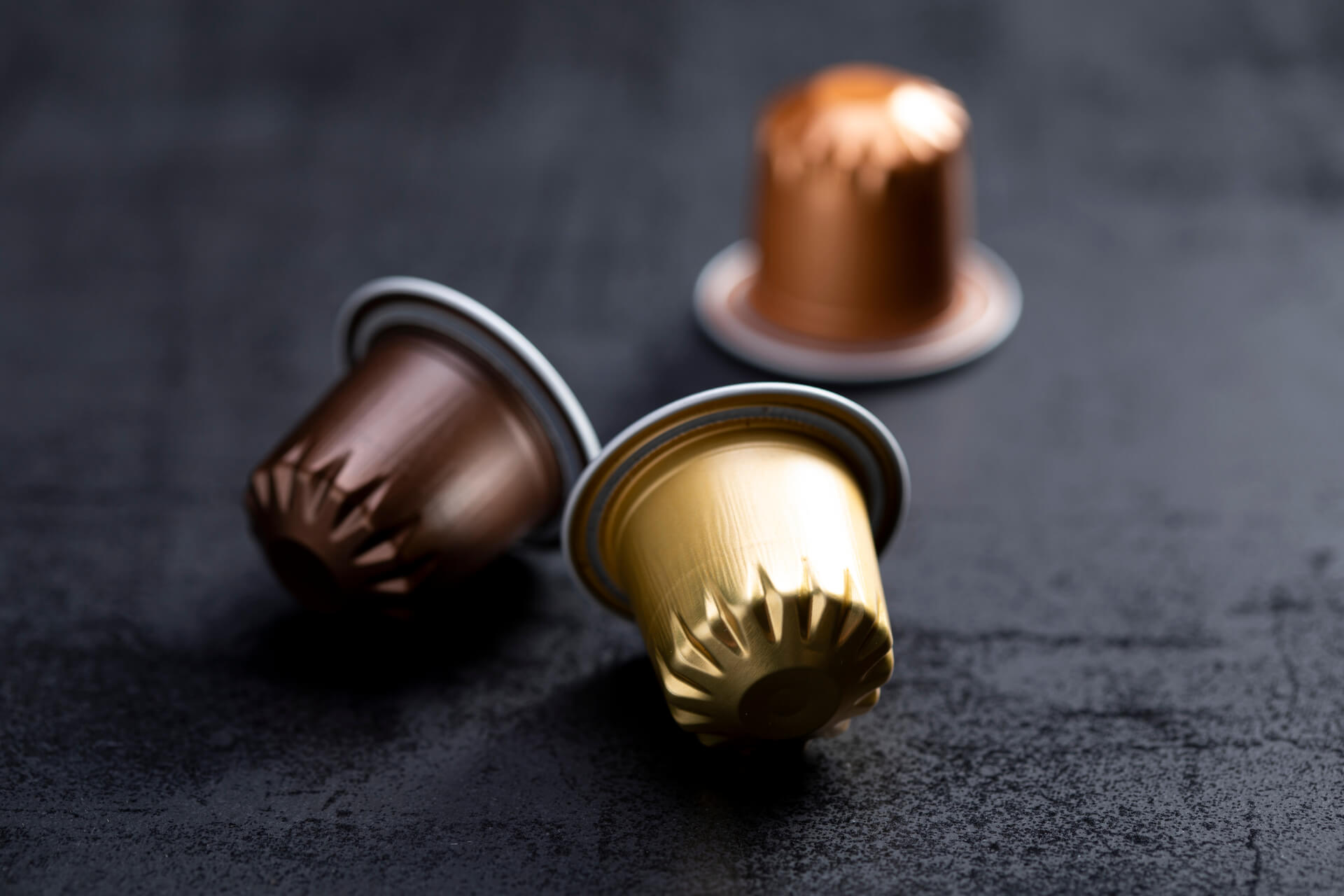Understanding Your Customers: Why Consumers are Shifting to Aluminum Coffee Capsules

Coffee drinkers enjoy different types of coffee for different reasons. However, the quality of coffee is the one characteristic everyone agrees is crucial.
But what is coffee quality? Can it be measured?
Various preferred attributes of coffee can mean the difference between an average and an excellent beverage experience. The one we will focus on in this article is freshness.
Coffee is meant to be consumed immediately after the roasting stage when it is still fresh. However, this isn’t always possible. It takes time for coffee capsules to hit store shelves. Manufacturers try to keep it fresh for their consumers as long as possible. They achieve this using various methods.
The first thing they do is prevent coffee from being oxidized. Oxidation is an intricate process through which ground coffee contacts oxygen from the air. This process leads to the degradation of coffee quality.
Aluminium is, without a doubt, the best material for preserving coffee freshness. It prevents oxidation from taking place. It is also more environmentally friendly than plastic.
Aluminum is better than plastic
Aluminum is perfect for making coffee capsules. It is airtight, which means when it is sealed, there is no room for oxygen to leak into the coffee capsule. Aluminum capsules are sealed in a vacuum to remove all the air in the capsule.
Coffee within the capsules is guaranteed to stay fresh longer than plastic capsules. It is important to note that while aluminum is good at keeping oxygen out, it doesn’t completely block it out. It means aluminum has a lower oxygen transmission rate (OTR) than plastic.
Further, aluminum’s ability to be recycled continuously makes it prime for manufacturing coffee capsules. It is food safe and can be reused at home without recycling. Consumers can buy fresh ground coffee, fill up their reusable coffee capsules and insert them in a coffee machine.
In recent years, consumers have become increasingly aware of global warming and its threat to the human race. This phenomenon is caused by environmental pollution in its many forms. One of these is the excessive use of plastic and poor disposal.
As a result, many consumers have become aware of their contribution to the pollution menace. They are looking to reduce pollution by changing the products they consume or the frequency of consumption.
Major players in the coffee industry have taken note of this development and are taking action to ensure they sell what the consumer needs. Nespresso, for instance, is now making coffee capsules in some of their product lines out of 80% aluminum.
Aluminum is highly recyclable. According to The Aluminum Association, up to 75% of all the aluminum ever produced is still in use today. It can be recycled hundreds of times without significant degradation. The same can not be said for plastic.
Private label coffee businesses & plastic capsules
Plastic capsules are chosen and widely used for two main reasons; they keep coffee in the capsules just fresh enough and are cheap to produce. The cost aspect has more influence on their dominance than most people care to admit.
Private label coffee businesses strive to make their products cheaper. This entices consumers to purchase more units, increasing their revenue. In so doing, coffee quality becomes a victim of profit. Plastic doesn’t preserve the freshness of coffee as well as aluminum does. Most regular coffee drinkers don’t notice this, but the elite drinkers do.
The insatiable need by businesses to make more profit keeps plastic coffee capsules in use. The worst part about plastics is not that they don’t retain coffee freshness. They end up in landfills, where they cause extensive damage to the natural ecosystem.
It takes up to 500 years for plastic to decompose. While it can be recycled, there are better candidates for recycling. Each time plastic is recycled, it loses its quality and becomes poorer at retaining coffee freshness.
The global capsule coffee market is predicted to grow at a compound annual growth rate (CAGR) of about 7.7%-7.9% between 2023 and 2027. With this growth rate, the continued use of plastics poses a grave threat to the global climate.
Final thoughts: Why Consumers are Shifting to Aluminum Coffee Capsules
While it is becoming evident that aluminum is gaining in on plastic, plastic is still the preferred option. The cost of aluminum greatly affects the final cost of coffee capsules.
However, more people are learning to appreciate fresh, high-quality coffee. Aluminum coffee capsules have been proven to deliver a fresh dose of coffee even after months of being on the shelf. This is one of the reasons more people are outgrowing plastic coffee capsules.
Aside from the freshness of coffee, it wouldn’t be appropriate to leave out the great impact that adopting aluminum coffee capsules continues to have on the environment. Even though consumers care about the quality of their coffee, they also care about the environment they live in.
As long as aluminum continues to have these two advantages over plastic, we will witness a continued rise in consumers who prefer it. Many stakeholders in the coffee industry appreciate this growth. Choosing your aluminum capsule manufacturer smartly can give your business the competitive edge it needs.
